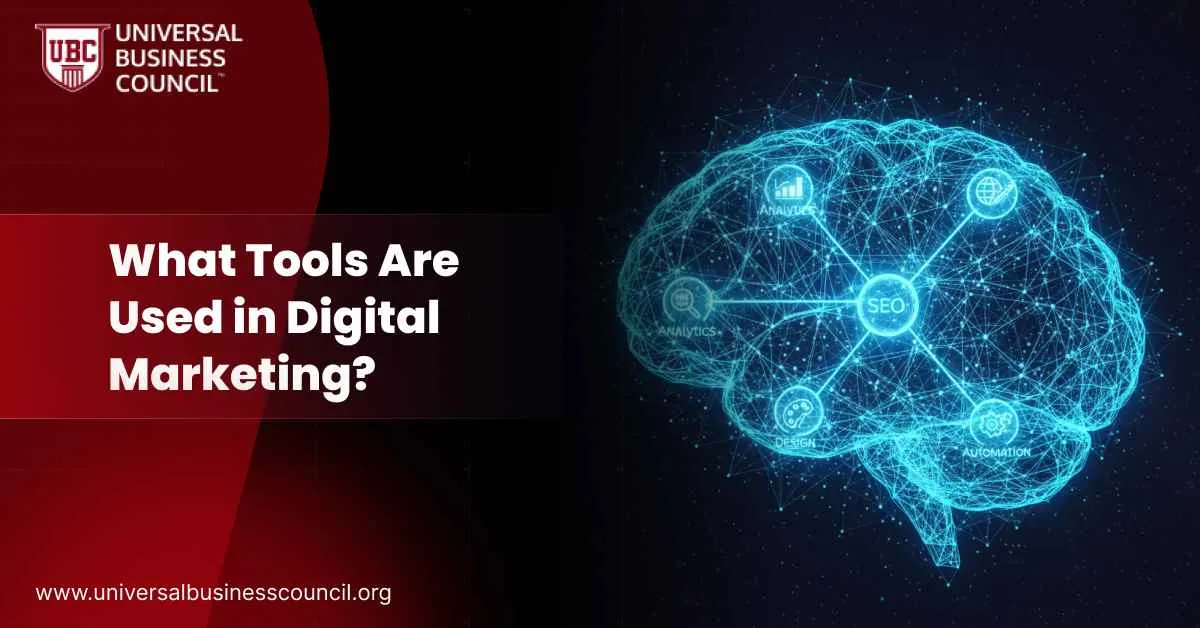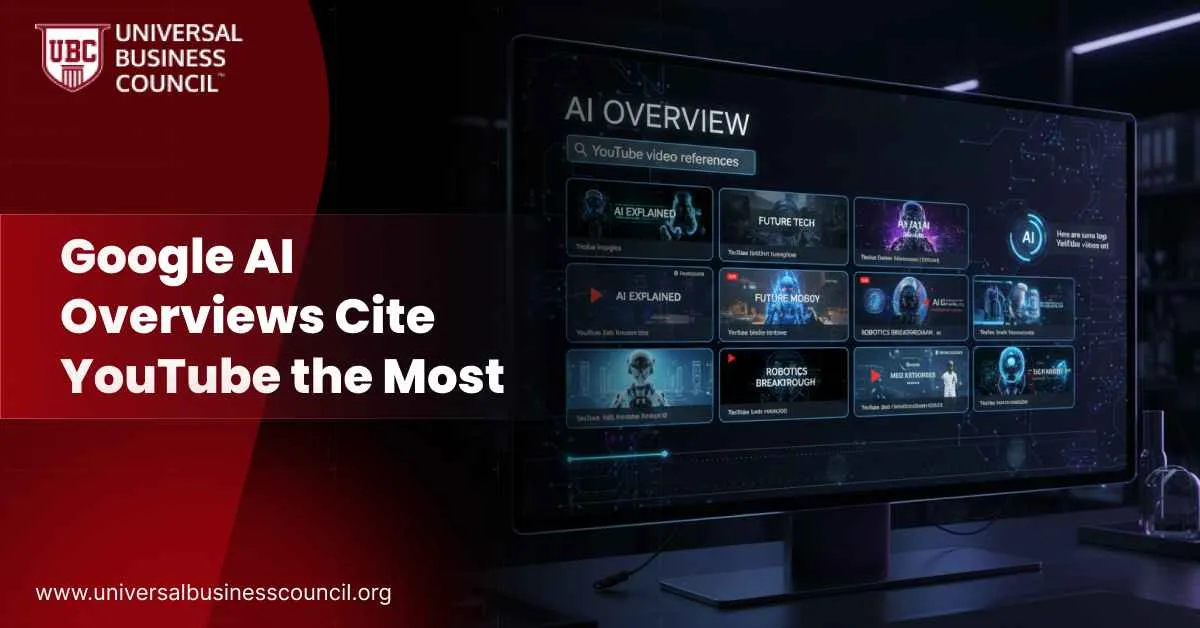 The success of any digital marketing strategy depends heavily on the tools marketers use to plan, execute, and analyze campaigns. From AI-driven content creators to advanced analytics dashboards, today’s marketing tools are built to help professionals make smarter decisions, automate repetitive tasks, and improve results.
As competition grows in 2025, marketers must understand which tools truly drive performance. If you want to learn how to master these tools effectively, enrolling in an AI Powered Digital Marketing Course is one of the best ways to build practical, industry-ready skills.
The success of any digital marketing strategy depends heavily on the tools marketers use to plan, execute, and analyze campaigns. From AI-driven content creators to advanced analytics dashboards, today’s marketing tools are built to help professionals make smarter decisions, automate repetitive tasks, and improve results.
As competition grows in 2025, marketers must understand which tools truly drive performance. If you want to learn how to master these tools effectively, enrolling in an AI Powered Digital Marketing Course is one of the best ways to build practical, industry-ready skills.
What Are Digital Marketing Tools and Why Do They Matter?
Digital marketing tools are software platforms that simplify how businesses attract, engage, and convert audiences online. These tools help marketers manage everything from social media and SEO to analytics, email automation, and paid ads.
In 2025, the marketing landscape has become data-heavy and AI-powered. Manual processes no longer keep up with real-time demands. Using modern digital marketing tools allows brands to optimize every campaign for efficiency and return on investment (ROI).
Why These Tools Are Essential
- Automation: Reduces repetitive manual work like posting, reporting, or segmenting audiences.
- Data Insights: Converts raw data into actionable intelligence for better targeting.
- Scalability: Manages large audiences and campaigns simultaneously.
- Consistency: Maintains brand tone and design across multiple platforms.
- Integration: Combines different marketing channels into one unified strategy.
Professionals who want to understand the technology powering these marketing platforms can strengthen their foundations through the Deep Tech Certification
from Blockchain Council. It explores how AI, automation, and data infrastructure shape digital ecosystems.
Which Categories of Digital Marketing Tools Exist?
Marketing tools are often grouped by function. Each category serves a unique role in achieving business objectives.
1. SEO and SEM Tools
These tools help marketers improve visibility on search engines, identify keywords, monitor competitors, and track website performance.
2. Content Creation and Management Tools
Content is at the heart of every marketing strategy. These tools help design visuals, generate ideas, and manage editorial calendars.
3. Social Media Management Tools
Social tools streamline posting, scheduling, and analyzing audience engagement across multiple platforms.
4. Email Marketing Tools
Email remains a powerful lead generation and retention channel. These tools automate campaigns and personalize messages.
5. Analytics and Reporting Tools
Analytics tools measure performance, track customer journeys, and provide valuable data for decision-making.
6. Advertising and Optimization Tools
These tools assist in running, managing, and optimizing ads across channels like Google, Meta, and LinkedIn.
7. Marketing Automation Tools
Automation tools connect and synchronize all marketing systems, helping teams save time and increase accuracy.
8. Design and Creative Tools
These tools support visual content creation for campaigns, social media, and websites — without requiring advanced design skills.
Marketers seeking to learn the technical applications of these categories can explore the Tech Certification
from Global Tech Council. It focuses on analytics, automation, and hands-on tool management.
Top Digital Marketing Tools in 2025
Below is a comprehensive look at the most widely used and effective tools across digital marketing functions in 2025.
1. SEO and SEM Tools
- Ahrefs: Known for backlink tracking, keyword research, and competitive analysis. Ahrefs helps marketers understand what drives organic visibility and where to focus efforts.
- SEMrush: An all-in-one SEO and SEM platform offering site audits, position tracking, keyword monitoring, and competitive insights.
- Surfer SEO: Uses AI to analyze keyword density, structure, and on-page optimization, ensuring your content ranks higher.
- SpyFu: Reveals competitor keyword strategies and ad campaigns, providing a strategic edge in both SEO and PPC planning.
2. Content Creation and Management Tools
- Jasper AI: One of the most advanced AI content generators, Jasper produces ad copy, blog posts, and landing page text based on brand tone and keywords.
- Canva: A user-friendly design tool that allows anyone to create infographics, social posts, presentations, and marketing visuals effortlessly.
- Notion AI: Combines project management with AI-driven idea generation. It’s ideal for content teams managing calendars and brainstorming topics.
- Grammarly: Ensures error-free writing with grammar and tone optimization, enhancing brand consistency.
3. Social Media Management Tools
- Hootsuite: Provides scheduling, monitoring, and analytics for multiple social media accounts in one place.
- Buffer: A simple yet powerful tool for scheduling posts and tracking engagement metrics.
- Sprout Social: Offers advanced reporting and audience insights. Its AI assistant helps identify trends and engagement opportunities.
- Predis.ai: Uses AI to generate post ideas, captions, and user-generated content videos, streamlining social media workflows.
4. Email Marketing Tools
- Mailchimp: A go-to platform for small and medium-sized businesses, offering automation, segmentation, and analytics.
- HubSpot Marketing Hub: Combines email automation with CRM integration, allowing marketers to manage leads effectively.
- ActiveCampaign: Known for advanced segmentation and customer journey mapping.
- Sendinblue (Brevo): Offers transactional and marketing emails along with SMS campaigns in one platform.
5. Analytics and Reporting Tools
- Google Analytics 4 (GA4): Tracks cross-device interactions, conversion paths, and audience demographics. It’s essential for data-driven marketing.
- Mixpanel: Focuses on event-based analytics, helping marketers understand user behavior and product engagement.
- Hotjar: Offers heatmaps and session recordings to show how users interact with a website.
- Tableau: A powerful data visualization platform that turns raw data into interactive charts and dashboards.
6. Advertising and Optimization Tools
- Google Ads: Provides smart bidding, audience segmentation, and AI-powered campaign optimization.
- Meta Ads Manager: Manages ad campaigns across Facebook and Instagram, offering precise targeting and conversion tracking.
- AdEspresso: Simplifies ad creation and testing for Facebook and Google Ads, making A/B testing easy.
- LinkedIn Campaign Manager: Tailored for B2B marketing, it helps run ads targeting professionals by role, industry, or location.
7. Marketing Automation Tools
- Zapier: Connects applications and automates workflows — for example, linking Google Sheets with email marketing tools.
- HubSpot: An all-in-one CRM and marketing automation suite with tools for email, lead scoring, and pipeline management.
- Marketo Engage: Used by enterprise marketers to automate complex multi-channel campaigns.
- Pardot (Salesforce): Ideal for B2B marketing automation, offering advanced analytics and AI-powered recommendations.
8. Design and Creative Tools
- Adobe Creative Cloud: A professional suite for creating graphics, videos, and multimedia content.
- Figma: Collaborative tool for designing websites, apps, and user interfaces.
- Visme: Helps marketers create infographics, reports, and visual presentations quickly.
- CapCut: A simple yet powerful video editing tool for short-form content on TikTok and Instagram.
How to Build the Right Digital Marketing Tool Stack
Every marketing team needs a custom tool stack that fits its goals, budget, and workflow.
1. Define Your Marketing Objectives
Whether it’s improving lead generation, engagement, or retention, start by identifying your key performance goals before selecting tools.
2. Choose Tools That Integrate Seamlessly
Look for platforms that can connect data across systems — for example, integrating HubSpot with Google Analytics ensures smooth lead tracking.
3. Prioritize Scalability
As your campaigns grow, you’ll need tools that expand with your needs. Choose systems like SEMrush or HubSpot that offer tiered upgrades.
4. Evaluate User Experience
A tool’s effectiveness depends on how easily your team can use it. Tools like Canva and Notion AI are great examples of intuitive design.
5. Track ROI
Regularly measure whether tools are improving performance or saving time. This ensures you invest only in software that delivers measurable results.
Professionals can enhance their strategic understanding of ROI and campaign management through the Marketing and Business Certification
from Universal Business Council. It teaches marketers how to evaluate performance tools and align them with business outcomes.
Trends Shaping Marketing Tools in 2025
1. AI-Driven Marketing Tools
Most modern tools now include AI features that assist with predictive analytics, content generation, and automation. Jasper AI and Surfer SEO exemplify how AI enhances speed and precision.
2. All-in-One Platforms
Marketers are adopting unified platforms like HubSpot and Zoho that consolidate CRM, analytics, and campaign management into one solution.
3. First-Party Data Focus
With privacy regulations increasing, tools are prioritizing secure and transparent data collection through first-party tracking and consent management.
4. Real-Time Insights
Tools like Mixpanel and Google Analytics 4 now provide live data, helping marketers adjust strategies on the fly.
5. Collaborative Ecosystems
Platforms like Notion and Figma are central to remote team collaboration, helping marketers manage projects from content planning to execution.
6. Predictive and Agentic Tools
Agentic systems are the future of marketing — AI tools that autonomously manage multi-step campaigns. They will soon dominate marketing operations by reducing manual oversight.
How Beginners Can Learn to Use These Tools
Learning these tools doesn’t require years of experience. Beginners can follow a step-by-step approach to build proficiency.
- Start with Core Tools: Begin with essentials like Google Analytics, Canva, and Mailchimp.
- Enroll in a Guided Program: The AI Digital Marketing Course teaches how to integrate automation and analytics into campaigns effectively.
- Experiment with Free Versions: Use free tiers of tools like Hootsuite or SEMrush to practice without investment.
- Apply Learnings on Real Projects: Create test campaigns or volunteer for small businesses to gain hands-on experience.
- Stay Updated: The tool landscape evolves fast, so continuous learning is key.
What are the top five marketing tools every beginner should know?
Google Analytics, Canva, Mailchimp, HubSpot, and SEMrush are essential starting points for most marketers.
Which AI tools are leading digital marketing in 2025?
Jasper AI, Surfer SEO, Predis.ai, and HubSpot AI are among the most used tools for automation and content creation.
Can small businesses rely on free marketing tools?
Yes, free tools like Canva, Hootsuite, and Mailchimp’s basic version are enough for startups to begin digital marketing efficiently.
Which analytics tools help improve ROI?
Google Analytics 4, Mixpanel, and Tableau provide data visualization and insights that drive better decision-making.
Are automation tools hard to learn?
No. Platforms like Zapier and HubSpot offer user-friendly interfaces and templates that simplify automation setup.
Conclusion
Digital marketing tools have become the foundation of every successful strategy. From SEO research to email automation and AI content creation, the right tools save time, improve precision, and amplify results.
In the end, marketing success depends on how well you combine creativity, strategy, and technology. With the right tools — and the knowledge to use them — you can turn every campaign into a measurable success story.
 The success of any digital marketing strategy depends heavily on the tools marketers use to plan, execute, and analyze campaigns. From AI-driven content creators to advanced analytics dashboards, today’s marketing tools are built to help professionals make smarter decisions, automate repetitive tasks, and improve results.
As competition grows in 2025, marketers must understand which tools truly drive performance. If you want to learn how to master these tools effectively, enrolling in an AI Powered Digital Marketing Course is one of the best ways to build practical, industry-ready skills.
The success of any digital marketing strategy depends heavily on the tools marketers use to plan, execute, and analyze campaigns. From AI-driven content creators to advanced analytics dashboards, today’s marketing tools are built to help professionals make smarter decisions, automate repetitive tasks, and improve results.
As competition grows in 2025, marketers must understand which tools truly drive performance. If you want to learn how to master these tools effectively, enrolling in an AI Powered Digital Marketing Course is one of the best ways to build practical, industry-ready skills.




Leave a Reply